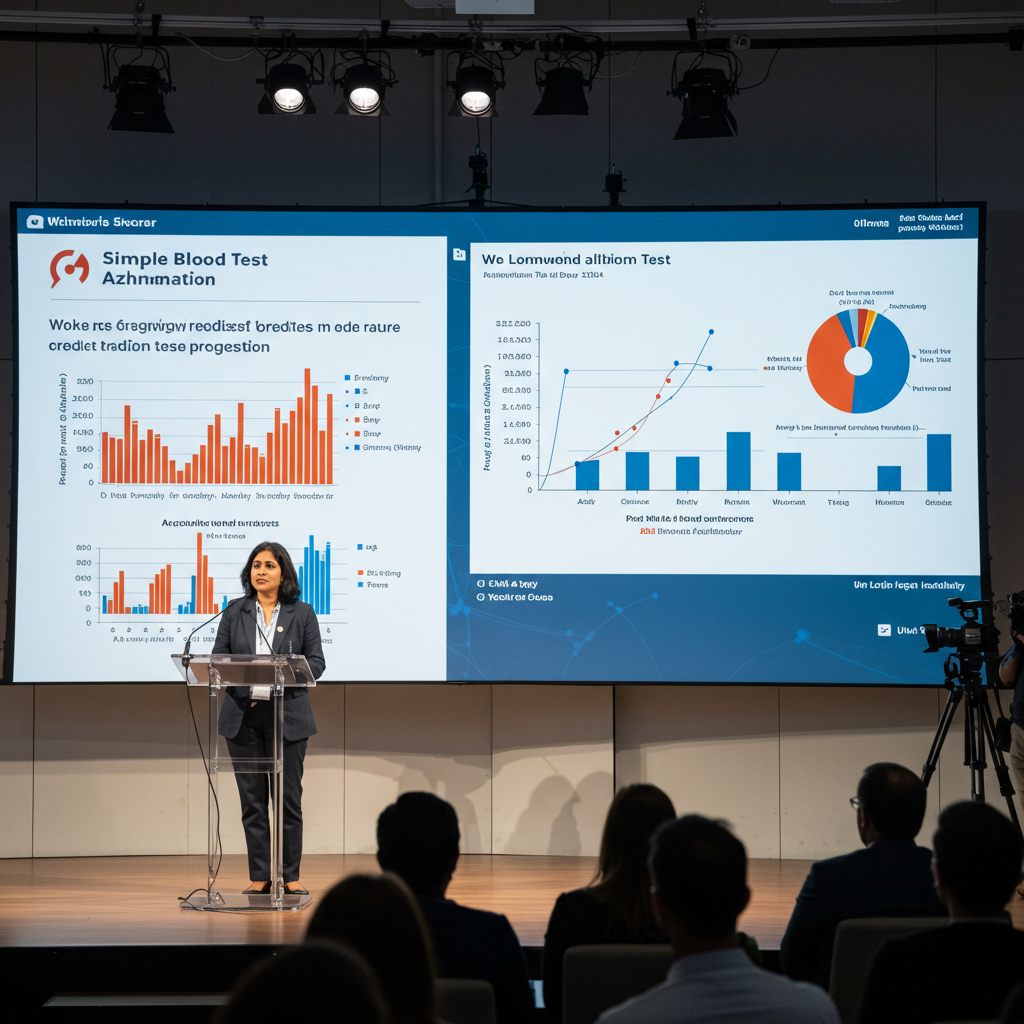For families and patients grappling with an early Alzheimer’s diagnosis, a major question is often how quickly cognitive function will deteriorate. While predicting this trajectory has been challenging, new research suggests a surprisingly simple and readily available test could offer valuable insight.
Presented at the European Academy of Neurology (EAN) Congress 2025, a study indicates that a routine measure of insulin resistance, known as the triglyceride-glucose (TyG) index, can help identify individuals with early Alzheimer’s disease (AD) who are at a significantly higher risk of rapid cognitive decline.
The Simple Test with Significant Potential
The study, conducted by neurologists at the University of Brescia, Italy, focused on the link between metabolic health and the pace of cognitive decline in patients with cognitive deficits, particularly those in the prodromal mild cognitive impairment (MCI) stage of Alzheimer’s.
Researchers reviewed the records of 315 non-diabetic patients, including 200 with biologically confirmed AD. All participants were assessed for insulin resistance using the TyG index – a low-cost, simple calculation derived from standard blood tests for triglycerides and glucose. Their cognitive status was then tracked over a three-year period.
Key Finding: Predicting Faster Decline in Early Alzheimer’s
The most striking finding emerged within the group of patients experiencing mild cognitive impairment specifically due to underlying Alzheimer’s disease (MCI-AD). The study revealed that those in the highest third for their TyG index experienced cognitive deterioration approximately four times faster than their peers with lower TyG values.
Specifically, patients with high insulin resistance (as measured by TyG) in this early AD subgroup lost more than 2.5 points per year on the Mini Mental State Examination (MMSE), a widely used cognitive assessment tool. This rate of decline is considered substantial.
A Link Specific to Alzheimer’s
Intriguingly, this predictive power of the TyG index for rapid cognitive decline was observed only in the Alzheimer’s disease cohort. No such association was found in patients with cognitive deficits caused by other types of neurodegenerative diseases included in the broader study group.
According to lead investigator Dr. Bianca Gumina, this specificity suggests a unique vulnerability of the Alzheimer’s brain to metabolic stress, particularly during the early, prodromal phase. This finding was unexpected and highlights that the mechanisms linking insulin resistance to cognitive decline may be particularly relevant or regulated differently in AD compared to other conditions.
How Might Insulin Resistance Accelerate AD?
While insulin resistance has long been implicated in the onset of Alzheimer’s, its role in driving the speed of progression has been less understood until now. Researchers propose several potential biological pathways by which metabolic dysfunction, indicated by a high TyG index, could hasten cognitive decline in AD:
Impaired Neuronal Glucose Uptake: Insulin resistance makes it harder for brain cells to absorb glucose, their primary energy source, impairing function.
Promoting Amyloid Accumulation: Metabolic issues may contribute to the buildup of amyloid plaques, a hallmark protein pathology in AD.
Blood-Brain Barrier Disruption: Insulin resistance is associated with damage to the protective blood-brain barrier, potentially allowing harmful substances into the brain.
Fueling Neuroinflammation: Metabolic dysfunction can trigger or exacerbate chronic inflammation in the brain, further damaging neurons.
The study also confirmed that a high TyG index was associated with blood-brain barrier disruption and increased cardiovascular risk factors. However, importantly, the researchers found no interaction between high TyG levels and the APOE ε4 genotype, a well-known genetic risk factor for AD. This suggests that metabolic risks, like insulin resistance, and genetic risks may operate through distinct biological pathways contributing to the disease.
Implications for Care and Research
The findings have significant practical implications for both clinical care and Alzheimer’s research.
Personalized Prognosis: Identifying high-TyG patients allows healthcare professionals to pinpoint those with early AD who may be more vulnerable to rapid progression. This can help set expectations and plan care more effectively.
Targeted Interventions: Knowing a patient is at higher risk due to metabolic factors could prompt earlier and more aggressive interventions aimed at improving insulin sensitivity. These could include lifestyle changes (diet, exercise) or pharmacological approaches, potentially complementing emerging disease-modifying drugs.
- Refining Clinical Trials: The TyG index could be used to better select participants for clinical trials, such as those testing anti-amyloid or anti-tau therapies. Focusing on high-risk individuals might increase the likelihood of observing a treatment effect on slowing progression.
- www.openaccessgovernment.org
- www.sciencedaily.com
- www.fox41yakima.com
- timesofindia.indiatimes.com
- ca.news.yahoo.com
The research team is continuing to investigate whether TyG levels correlate with changes seen in neuroimaging biomarkers, which could potentially aid even earlier detection and patient stratification.
In conclusion, this study presents compelling evidence that a simple, accessible blood test for insulin resistance can provide a crucial piece of the puzzle in predicting how quickly Alzheimer’s disease may progress in its early stages. This opens avenues for more personalized patient management and highlights metabolic health as a key, potentially modifiable target in the fight against AD.


